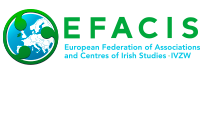Rennhak, Katharina (ed.)
In an article in The Guardian, entitled “This much I Know” (2009), Sebastian Barry emphasises the social importance of the storyteller: 'Not everyone is a storyteller, but every group of people needs one. It’s an ancient, campfire thing. Storytellers are necessary in the dark, around the fire – someone needs to take responsibility to drive away the terrors of darkness. Or sometimes to help explain the darkness, and even help you embrace it; realise that it’s not all black, that there’s always a seam of beauty.' (Ferguson) This statement, which daringly reassembles a number of stereotypes about storytelling, no longer casts twenty-first-century authors as poets who “are the unacknowledged legislators of the World” (Shelley 535). Neither does it envision the author, as W. B. Yeats did, as predominantly a dramatist who writes for a “theatre where the capricious spirit that bloweth where it listeth has for a moment found a dwelling-place [and has, as a consequence,] good right to call itself a National Theatre” (414). In the twenty-first century the author whom “every group of people needs” is first and fore- most a storyteller. Percy Bysshe Shelley would, of course, have considered his Prometheus Unbound and (some) other dramatic texts as poetry, just as well as Yeats is, more generally, interested in “Literature [...], the ultimate creator of values” which can manifest itself in “every movement of imagination in song or story or drama” (414). Drawing on the terminology of Wellek and Warren, one could say that Shelley, Yeats and Barry emphasise one “generic mode” – the lyrical, the dramatic and the epic – which dominates their respective (literary) cultures. Significantly, these “generic modes” are neither dependent on nor necessarily correlative to “the generic forms” or “these ‘ultimates’ – poetry, fiction and drama” (229). Narrating Ireland in Different Genres and Media sets out to trace the narrative dominant through twentieth-century and twenty-first-century fiction, poetry, drama, film, TV and the World Wide Web.
 Efacis
Efacis  Full volume
Full volume



